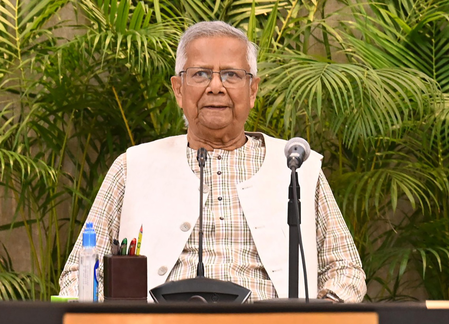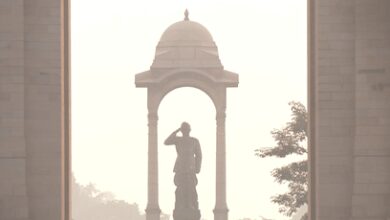With BNP ahead, Yunus and Jamaat move to tighten grip through appointment of loyalists

New Delhi, Nov 1 (IANS) The elections in Bangladesh will be a closely watched affair, for not only will the outcome impact the future of the nation, but the results will have a bearing on its neighbours as well.
There is a lot of talk about whether the elections will be held at all in February, and even if they are, the question is whether they will be free and fair.
In the run-up to the elections, there are plenty of developments taking place and signs of a rift between the interim government and the Jamaat-e-Islami are visible. This is largely to do with the fact that the two sides are installing their loyalists in key positions ahead of the elections.
The Jamaat recently swept the Dhaka University elections, and this has put it in a strong position. Now the Jamaat is installing its men in key positions in all universities across the country in a bid to consolidate its position among the students.
Analysts say that no party would take the students lightly as they are aware that it was protests by them which effected a regime change not just in Bangladesh, but in Nepal as well.
The Jamaat-e-Islami is also forcibly installing its loyalists and members in key positions in state institutions as well. This has raised eyebrows as many feel that the Jamaat would want to be in charge even if it fails to win the elections.
On the other hand, the Jamaat has raised concerns over the caretaker government headed by Muhammad Yunus appointing politically loyal persons in key institutions.
As a new Secretary was appointed to the Public Administration ministry, and the person, the Jamaat said, was not just loyal to Yunus, but also had a chequered past. It also raised concerns that at least four to five advisers in the government are controlling major administrative appointments with the intention of turning the administration into a partisan one.
Bangladesh watchers say that these are clear signs that the elections will not be a free and fair affair. In the months to come, things could get worse, and there is every chance the country would once again be marred by violence.
None are on the same page, and all these moves are being made with the aim of controlling the election results.
With the Bangladesh Nationalist Party (BNP) walking out of an alliance with the Jamaat, a lot has changed.
Almost all opinion polls suggest that the BNP has the edge.
With the Awami League out of the picture owing to the ban imposed on it, the BNP is clearly in the front, while the Jamaat would be at a distant second. The newly formed National Citizen Party (NCP) is backed by Yunus, and the polls for now indicate that this party would end up third.
The fact that the BNP is ahead has made both Yunus and the Jamaat insecure. Both want to ensure that if they are not in power, they could at least control the administration by holding on to key posts. This explains the rush by both sides to appoint their loyalists to key positions ahead of the elections.
The BNP and Jamaat have formed the government together in the past. However, this time around, an alliance looks nearly impossible. Further, there is an open rift between the Yunus administration, Jamaat, and the BNP.
Both sides have accused the BNP of trying to create an atmosphere of fear ahead of the elections. The BNP has been accused of trying to create panic in the minds of the people, stating that the elections would not be a fair process. The Jamaat even accused the BNP of trying to obstruct the elections by plotting conspiracies so that those based in India would get an opportunity to destabilise Bangladesh.
Officials in New Delhi say that this is a baseless charge and the BNP is insecure that both Yunus and the Jamaat are trying to rig the elections so that they remain at the helm. New Delhi has always advocated for a stable Bangladesh and wishes that the elections would be a free and fair one, the official also added.
–IANS
vicky/vd





